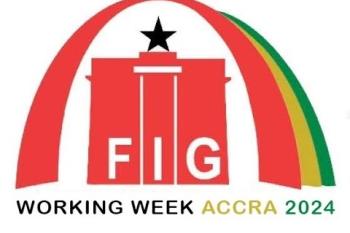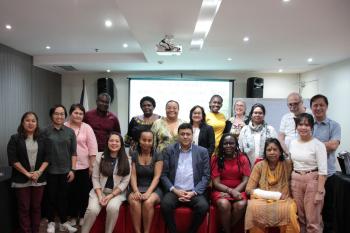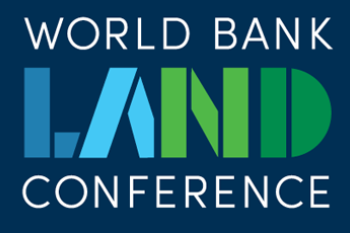Advancing land tenure security and equity in the Democratic Republic of Congo
UN-Habitat and the Institut National de la Statistique (INS) held a validation workshop in Kinshasa on September 11-12, 2023, to review the report on land tenure security in the Democratic Republic of Congo (DRC). The workshop brought together experts from relevant authorities and industries to share insights on the complex situation in DRC.
In DRC, the 1973 law designates all land as state-owned, yet rural land management often relies on local customs. Unfortunately, community rights are frequently overlooked in the legal system, exacerbated by conflict in the east displacing many populations.
To address these challenges, the project, "Disaggregated Indicators on Land Rights and Tenure Security for Policies and Actions that Leave No One Behind in Africa" was introduced in DRC, and other countries like Uganda, Zambia, Morocco and Senegal. The project aims to enhance DRC's capacity to produce reliable, gender-disaggregated land data for evidence-based policy decisions, aligning with SDG land indicators. In particular, the project aims to help partner countries to report progress on secure land rights by 2024, specifically on Indicators 1.4.2 and 5.a.1.
A prior workshop in March 2022 laid the groundwork, bringing state partners together for consultations on land and statistics. Further, a technical meeting in July 2022 involved experts discussing land tenure security, data availability, and questionnaire adaptation. Simultaneously, UN-Habitat experts continued refining the technical document.
On September 11, 2023, experts reconvened in Kinshasa for a validation workshop, focusing on accurately representing DRC's land tenure security context and verifying information authenticity. Divided into two groups, experts examined land management practices and scrutinized data sources, analysis, and the joint module for land tenure assessment. The final document was presented in a plenary session for formal validation.
The workshop assessed the legal and institutional framework, highlighting gaps in the existing dataset for reporting on land-related indicators. Discussions revolved around incorporating land rights and tenure security inquiries into future statistical surveys to enhance data quality and completeness.
The validation workshop proved successful, raising awareness among stakeholders about the importance of land tenure security and property rights. This achievement underscored the recognition of secure land tenure's impact on peace, economic development, and sustainable land management. The heightened awareness is pivotal for ensuring the significance of secure land tenure is considered in broader developmental goals.
Recognizing the increasing interest in monitoring land tenure security, collaborative efforts like this workshop contribute to the data collection and reporting capabilities of participating countries. This collective endeavor is poised to foster improved land management practices, making a substantial contribution to broader developmental objectives.
Voir article en français | See article in French


